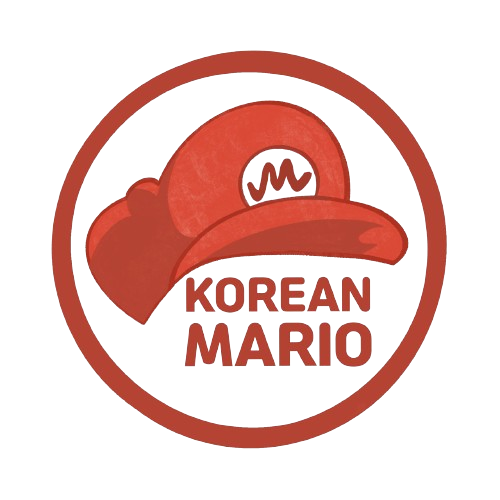
The structure “-아/어야 하다” in Korean expresses necessity or obligation in English. It can be translated as “must,” “have to,” or “should.” This grammar pattern is used to indicate that a certain action or situation is necessary or required. It emphasizes that something needs to be done.
Learn more daily content on Instagram!
For example:
- 공부해야 해. (You must study.)
- 일찍 일어나야 해. (You have to wake up early.)
- 곧 출발해야 해. (We need to leave soon.)
| verb/adj. stem ends with ‘아’ or ‘오’, : 아야 하다/되다 | vowels other than ‘아’ or ‘오’ or consonant: 어야 하다/되다 | verb ends with 하다: 해야 하다/해야 되다 |
| (to go) 가다 → 가야 해요/돼요 | (to eat) 먹다 → 먹어야 해요/ 돼요 | (to study) 공부하다 → 공부해야 해요/돼요 |
| (to come) 오다 → 와야 해요/돼요 | (to use) 쓰다 → 써야 해요/ 돼요 | (to call) 전화하다 → 전화해야 해요/돼요 |
| (to buy) 사다 → 사야 해요/돼요 | (to drink) 마시다 → 마셔야 해요/ 돼요 | (to exercise) 운동하다 → 운동해야 해요/돼요 |
| (to see) 보다 → 봐야 해요/돼요 | (to turn on) 키다 → 켜야 해요/ 돼요 | (to shower) 샤워하다 → 샤워해야 해요/돼요 |
| (to sleep) 자다 → 자야 해요/돼요 | (to learn) 배우다 → 배워야 해요/ 돼요 | (to start) 시작하다 → 시작해야 해요/돼요 |
(to go) 가다 → 가야 해요/돼요 have to go
(to come) 오다 → 와야 해요/돼요 have to come
(to buy) 사다 → 사야 해요/돼요 have to buy
(to see) 보다 → 봐야 해요/돼요 have to see
(to sleep) 자다 → 자야 해요/돼요 have to sleep
(to eat) 먹다 → 먹어야 해요/ 돼요 have to eat
(to use) 쓰다 → 써야 해요/ 돼요 have to use
(to drink) 마시다 → 마셔야 해요/ 돼요 have to drink
(to turn on) 키다 → 켜야 해요/ 돼요 have to turn on
(to learn) 배우다 → 배워야 해요/ 돼요 have to learn
(to study) 공부하다 → 공부해야 해요/돼요
(to call) 전화하다 → 전화해야 해요/돼요
(to exercise) 운동하다 → 운동해야 해요/돼요
(to shower) 샤워하다 → 샤워해야 해요/돼요
(to start) 시작하다 → 시작해야 해요/돼요
Examples
- 공부해야 해요. (I have to study.)
- 물을 마셔야 해요. (I need to drink water.)
- 일찍 일어나야 해요. (I have to wake up early.)
- 숙제를 해야 해요. (I must do homework.)
- 운동을 해야 해요. (I need to exercise.)
- 공부해야 돼요. (I have to study.)
- 물을 마셔야 돼요. (I need to drink water.)
- 일찍 일어나야 돼요. (I have to wake up early.)
- 숙제를 해야 돼요. (I must do homework.)
- 운동을 해야 돼요. (I need to exercise.)
아/어야 하다 vs 아/어야 되다
“아/어야 하다” is a polite form commonly used in written language to express necessity or obligation, while “아/어야 되다” is more commonly used in spoken language to convey the same meaning. Both forms indicate that something must be done or should be done. The choice between the two depends on the level of formality or politeness required in the context of communication.
- 가야해요 (Gaya haeyo – I have to go):
- A: 지금 집에 가야해요. (I have to go home now.)
- B: 알겠어요. 다음에 봐요. (Okay. See you next time.)
- 전화해야 해요 (Jeonhwa haeya haeyo – I have to make a call):
- A: 지금 엄마에게 전화해야 해요. (I have to call mom now)
- 켜야해요 (Kyeoya haeyo – I have to turn on):
- A: 불을 켜야 해요. (You should turn on the light.)
- B: 어둡네요. 감사합니다. (It’s dark. Thank you.)
- 샤워해야 해요 (Syawo haeya haeyo – I have to shower):
- 지금 샤워해야 해요. (I have to shower now.)
Learn Korean With More Blogs

- EPS Free Course
- Learn with BTS
- Numbers and Words
- Travel and Daily Korean
- TOPIK
- Hangul – The Korean Alphabets
- Beginner Grammar
- Intermediate Grammar
- Tools Names
Table of Contents

